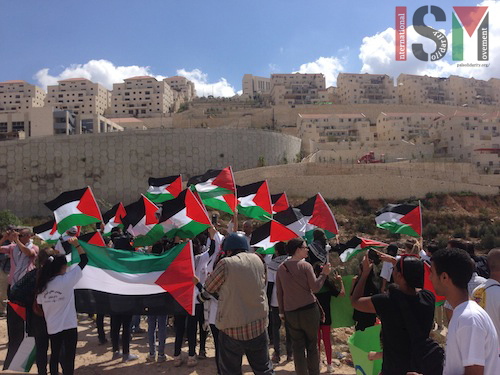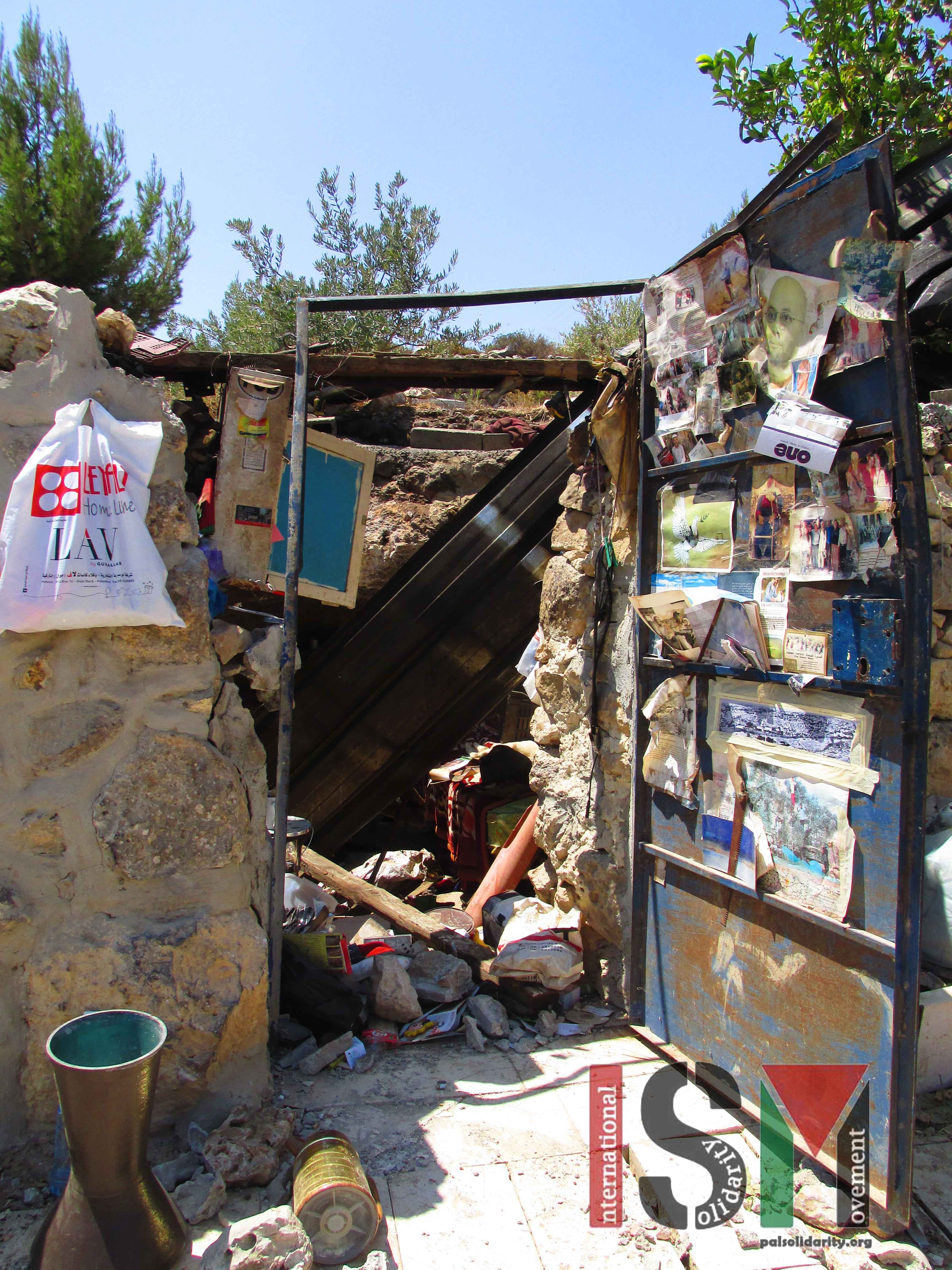Tag: Bethlehem
-
VIDEO: Israeli forces use violence against unarmed demonstrators attempting to plant olive sapplings in Wadi Foukeen
26th September 2014 | International Solidarity Movement, Khalil team | Wadi Foukeen, Occupied Palestine Wadi Foukeen is a Palestinian village just west of Bethlehem with a population of approximately 1,250 people. A weekly Friday demonstration has been organized by the village community against the Israeli occupation and in response to the recent land grab of 4,000…
-
Palestinians and ISM’ers clean up after demolition of Palestinian home
20th August 2014 | International Solidarity Movement, Khalil team | al-Walja, Occupied Palestine At 10am on the 18th of August in al-Walja, north of Bethlehem, the Israeli army demolished the residence of a Palestinian man. The man was alone on his land when the solders arrived with a bulldozer. The soldiers stated that they had a court…
-
Palestinians protest in solidarity with Gaza
3rd August 2014 | International Solidarity Movement, Vern | Bethlehem, Occupied Palestine On Friday August 1st, Palestinians in Bethlehem demonstrated against Israel’s massacre Gaza. Between 3,000-5,000 people protested, men, women, and children. The demonstrators marched to the checkpoint, where they faced an Israeli guard tower. People were chanting and singing, and no one was throwing any…



